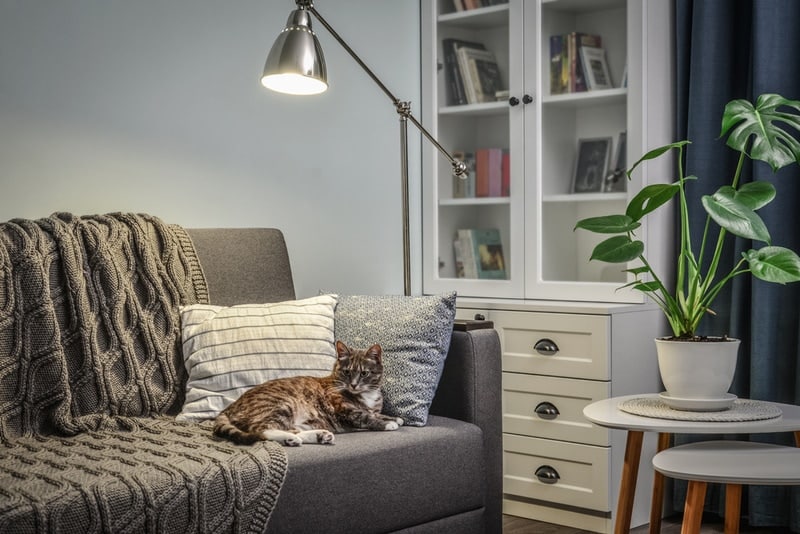It’s no secret that our cats gravitate towards warmth. Most cats love to nap in a cozy, snuggly spot, whether it’s on your laptop lid, heater vent, or sunny windowsill. But what about heat lamps? We know they’re great for reptiles and other ectotherms that rely on outside heat sources to keep them warm, but can they benefit cats?
The short answer is yes, heat lamps can be safe for cats. However, there are always risks, and any inappropriate setup can pose potential harm to your feline. In this article, we will discuss heat lamp safety so you can create the proper setup if you choose to use one.

Heat Lamps Are Safe for Cats
If you’re wondering whether heat lamps are safe for cats, there’s probably a specific reason.
Whether you have an outdoor cat that you’d like to keep warm, or your cat just gave birth to a litter of kittens, putting a heat lamp up for an extra heat source can be an excellent decision.
However, although it is generally safe, it does come with several risks, and there are certain precautions you need to take to ensure your cat’s safety when using a heat lamp. Here are a few suggestions on how to choose the appropriate heat lamp and provide the correct setup.
Tips to Maintain Your Cat Safe
1. Make the Lamp Inaccessible
When you put the lamp up, you’ll want to make it in a place your cat can’t reach. It can be very dangerous and pose many health risks for your cat to be directly near the heat lamp.
Many heat lamps come with clamps and other attachment pieces so that you can appropriately mount it in a suitable spot. Ensure the heat lamp is secure and immovable to prevent fire hazards and safety risks.
That means—keep fur, tails, noses, claws, and teeth away at all times!
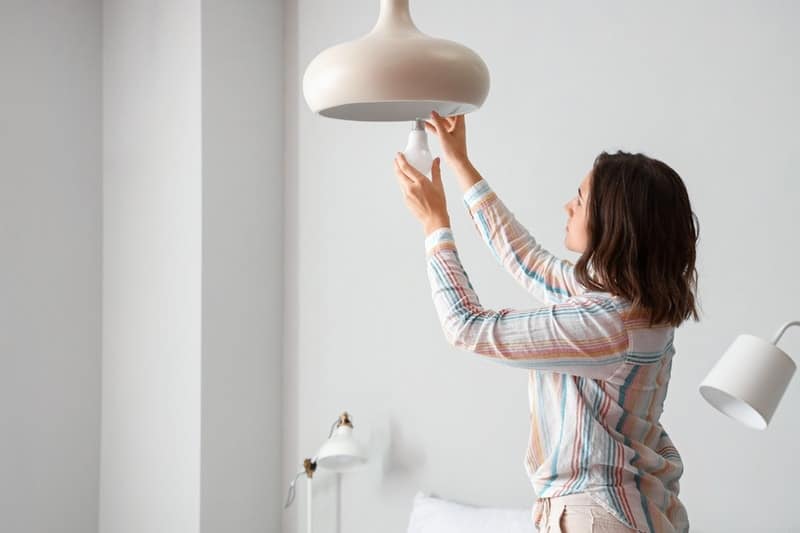
2. Select Appropriate Wattage
Wattage is very important. You’ll want to get the appropriate amount for your particular setup. This factor will be determined based on where you’re setting the heat lamp up and how much heat you are looking to provide.
If you are indoors, you’ll need a lot less wattage than if you were to set up an outdoor space in the cold.
3. Make Sure It Is Covered
Most heating lamps come with covers, but some of them do not. If the one that you have does not come with a cover, you will need to compensate for that. Safety is extremely important with heating lamps because not only can it cause burns, but you also risk setting your house on fire!
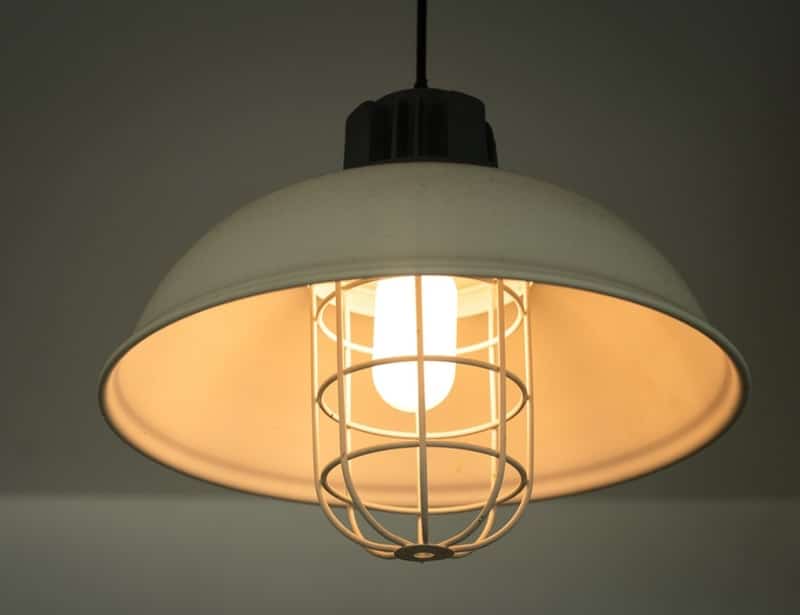
4. Always Turn It Off to Rest
Heat lamps produce a lot of heat and consume a lot of electricity. For this reason, monitoring how much the heat lamp is being used is crucial. Remember to unplug it as necessary and ensure it has time to cool off.
5. Monitor the Area
Never leave the heat lamp on for long periods unattended. It can cause some pretty serious hazards to the home. Always check to ensure nothing obstructs the output and monitor the heat. Having a temperature gauge nearby can be helpful to make sure it maintains temperature, too. Ensure the heat is away from paper, cardboard, bedding or curtains.
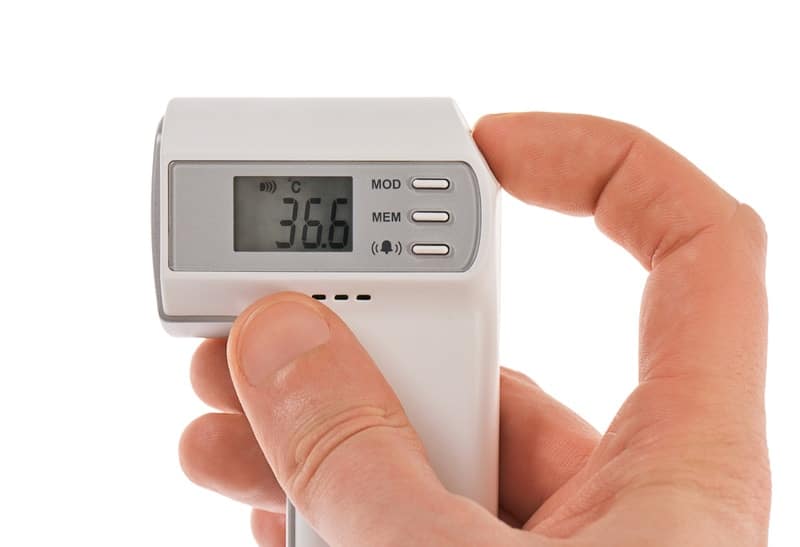

Benefits of Heat Lamps for Cats
Heat lamps for cats can be very beneficial in the right circumstances. Here are a few to mention.
Helps in Drafty Homes
Some homes are draftier than others. If you have a particularly drafty home, it can get quite chilly in the colder months. If your cat loves to sit next to these drafty areas but really dislikes being cold, having a heat lamp nearby can provide an extra layer of warmth, preventing them from catching a chill.
Warms Up Window Spots in Winter Weather
It’s no secret that our cats love window seats. However, sitting next to a window can get quite chilly in the winter months. A heat lamp above them while they still enjoy the views can create a much warmer and more inviting atmosphere.
Protects Outdoor Cats from the Elements
If your cat is strictly outdoors, they can get extremely cold in winter. If you live in an area that drops below freezing, making your cat a warm nesting spot where they can regulate their body temperature is crucial. Sometimes, a box of straw just won’t cut it.
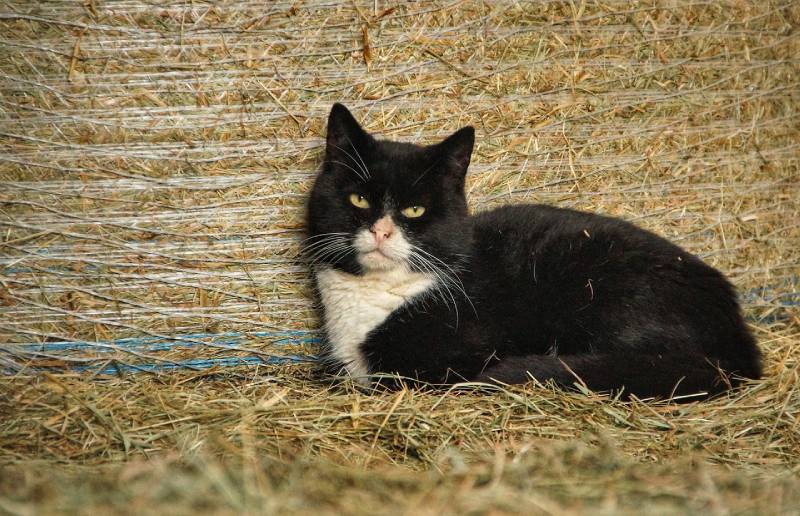

In What Circumstances Can You Use Heat Lamps for Cats?
You can use heating lamps for cats in several circumstances. If your cats need a little extra warmth to keep them cozy, that’s your call to make.
However, there are some special circumstances where cats might benefit a little extra from having a heat lamp around them.
Birthing Areas
If your cat just gave birth to a litter of kittens, it is a good idea to provide an extra layer of warmth for when the mother cat is away. This will keep the kittens warm and cozy, helping them maintain body temperature (which is a particular challenge for them in the very early days).
However, maintaining the proper temperature is vital, as you won’t want the kittens to overheat. Use your judgment and do your research to ensure they get the appropriate amount of heat per your setup. Always have a thermometer at the level of the kittens to ensure you are providing them with the right amount of heat. An accessible area away from the heat lamp is important so that the kittens and mother cat can move away from the heat source if they want to.
Outside Living
If your cat lives outdoors, putting a heat lamp out for wintertime is a fantastic way to ensure they don’t get too cold. It can get downright chilly some nights, and providing shelter doesn’t always cut it. Your kitty wants to be warm, too!
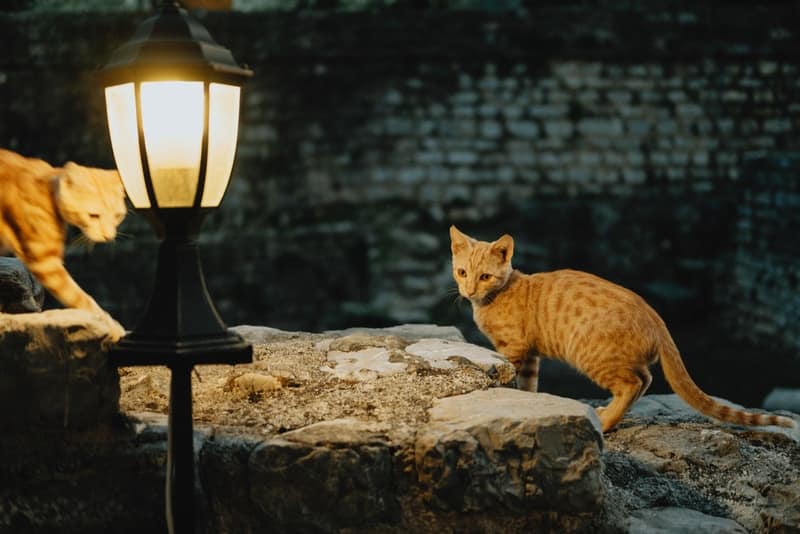
Elderly Cats
Elderly cats could really use some extra warmth. They might not be able to maintain their body temperature as well as they age, so having a heat lamp around provides a way to ensure that they stay as warm as they need to.
Your cat needs to be able to escape the heat lamp if it gets too warm, so don’t put the lamp in an area where your cat might not be able to escape if they need to.

Downfalls of Heat Lamps for Cats
Heat lamps can be an excellent addition to your cat’s living space if they need extra warmth. However, if you install it incorrectly or put it in an area that is accessible, it could lead to several issues. Let’s discuss them.
Burns
Cats can get burned incredibly easily if your heat lamp is down quite low. Even though they have an adequate layer of fur covering their body, if the lamp comes into contact with their body it can burn the hair and skin. Heat lamps get incredibly hot, and burns can be tricky to treat.
If your cat gets burned, they need to see a vet immediately. They will likely need a course of antibiotics, pain relief and other treatments prescribed by your vet. Burns are painful, and it can take several days for the extent of a burn injury to appear, so prompt veterinary attention is a must.
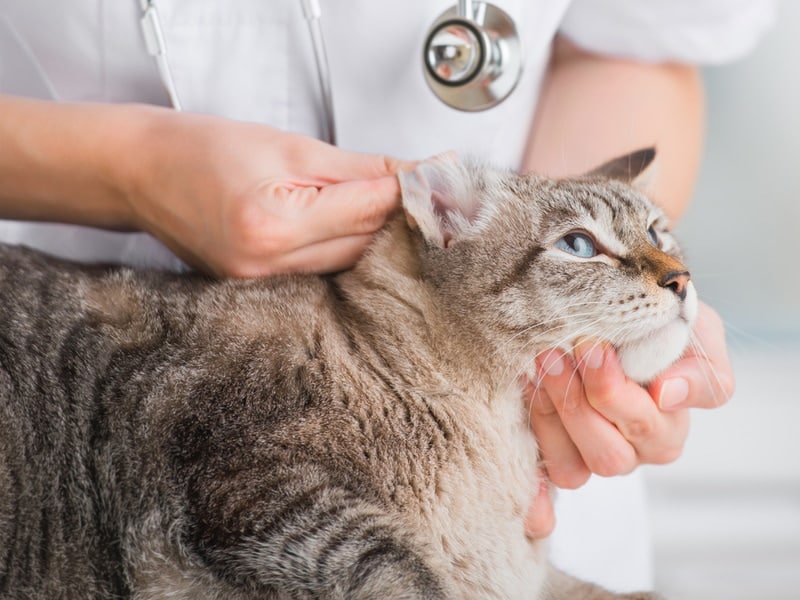
Electric Shock
If your cat chews on a wire or gets too close to the lamp, it could result in electric shock. Electric shocks can be hazardous and even deadly for your cat.
It is crucial to have the heat lamp a safe enough distance away from your cat to prevent them from coming in contact with it at all. This includes hiding cords so your cat is not tempted to play with or chew on these tempting strings.
Overheating
If your cat is in a confined space with a heating lamp, they can’t just get out whenever they please. So, if temperatures are just too high, it can cause potential overheating—which can be very dangerous for any cat.
Shattering
Heat lamp bulbs are not shatterproof. If something happens to the lamp, say it gets knocked into or bumped, it can hit the floor and break into very tiny shards. If your cat is nearby, it can cause injury.
Higher Electric Bills
Heat lamps use a good amount of electricity. If you run the heat lamp regularly, your electric bills might increase slightly.


Alternatives to Heat Lamps for Cats
There are alternative options to heat lamps available, depending on your particular reason for needing one.
Heating Pad
You can use a heating pad under supervision, placing it neatly under a blanket or cat bed so that your furry friend can stay cozy. This option will only work in some scenarios, however. If you have an outdoor cat, a heating pad isn’t as suitable an option, as it is harder to regulate and ensure it stays away from moisture and other outdoor elements.
Hot Water Bottles
If you need a way to keep baby kittens warm, you can continually heat up water bottles and stick them under blankets, too. Just make sure the kittens don’t contact the hot bottles directly.
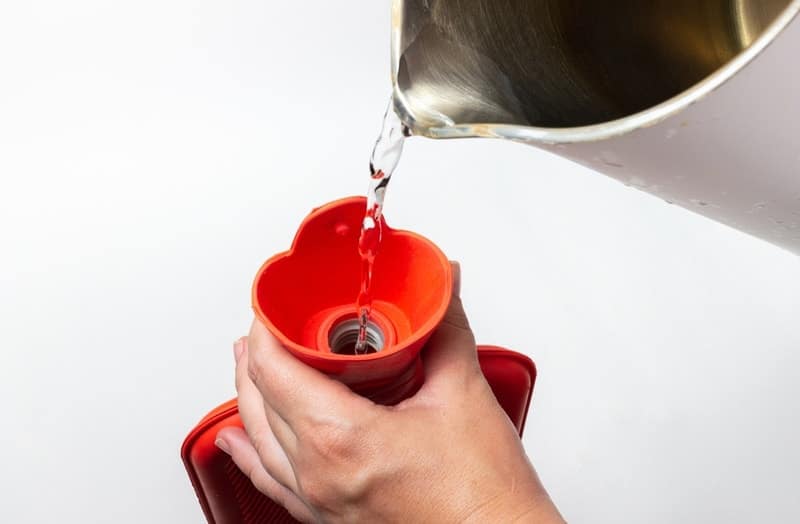
Ceramic Heat Emitters
Instead of using a heat lamp, you can use a ceramic heat emitter. Rather than using false light alongside heat, these lamps heat without emitting any light. This often will help your cat maintain their daytime nighttime cycles without disruption. However, they often don’t have guards to stop your pet coming into direct contact with the heat source so you have to be absolutely sure that your cat cannot touch the lamp.

Conclusion
Heat lamps can be a helpful option for cats under the right circumstances. They require a very secure setup to avoid any potential hazards that come along with them. If you have an outdoor cat, having a heat lamp around can really benefit them by providing a source of warmth during the colder months of the year, but don’t be surprised if the neighborhood cats want a piece of the action!
Keep in mind that there are always alternative options that might work better for some situations. Feel free to explore different products for your particular scenario and set-up.
Featured Image Credit: mama_mia, Shutterstock

